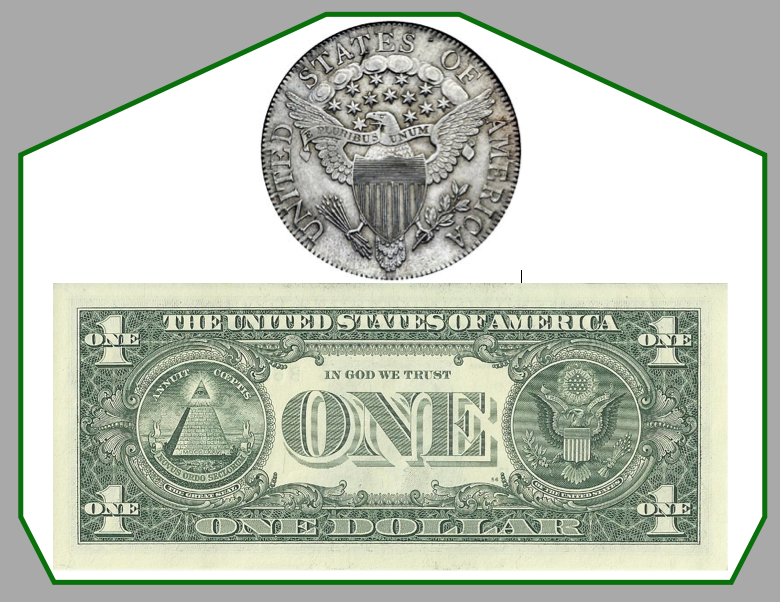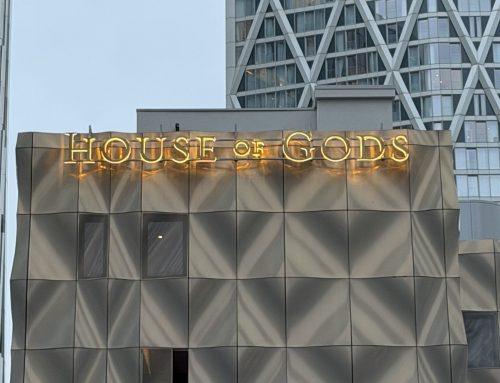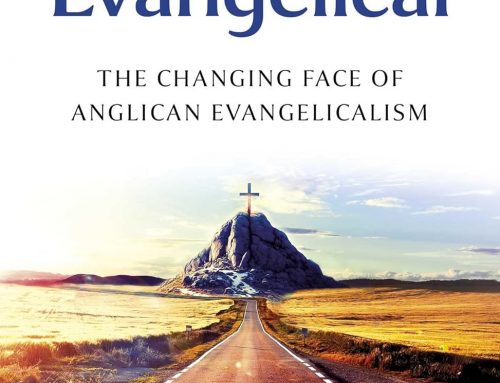‘In God we Trust’ – Editorial, Easter 2023
‘In God we Trust’
Editorial, Easter 2023

The Rev’d Dr. Nicholas Henderson
Editor: Anglicanism.org
‘In God we Trust’– a phrase that appears on American banknotes and coinage – was first approved by Congress in 1864 during the American Civil War. The provenance of the phrase isn’t biblical but comes rather from the American National Anthem, a stanza at the end of the fourth and final rarely sung verse: “And this be our motto: In God is our trust. And the Star-Spangled Banner in triumph shall wave, O’er the land of the free and the home of the brave.” The anthem is itself an exposition of a poem ‘The Defence of Fort McHenry’ by Frances Scott Key during the War of 1812 against the British.
It seems today that the banknote rather than the motto has elicited more faith than a sinking conventional religious affiliation and patriotism.[i]
All over the Western world something similar has been happening for at least the last 70 years and arguably longer. Traditional denominational Christianity is in slow and perhaps terminal decline. Of course, this is always countered by the claim that conservative evangelical church congregations are supposedly growing and flourishing. Whatever, it is obvious that the critical mass of Christian observance is shifting out of Europe and North America southwards and towards what is generally called the developing world.
No one has satisfactorily explained the reason why people are choosing a non-affiliated secular way of life. The spectacle of tiny elderly congregations worshipping in historic buildings built for much larger numbers has become commonplace in the United Kingdom, as have closed and converted church buildings. Ironically, it is only in the UK capital London with a large influx of Christians from abroad that the trend of decline is less marked.
Various attempts have been made at analysing the reasons for the increasing reluctance of people, especially younger people, to embrace the church-going practices of previous generations. Considering ‘baby-boomers’ for example the finger of suspicion is pointed at individualism driven in turn by social isolation. Arguably, this in turn is driven by modern communication through the third-party medium of the small screen. Also, there is materialism with the suggestion that the previously religious expectation of a delayed gratification in heaven has been replaced by a realised wealth beyond the avaricious dreams of previous ages. All this could be interpreted as a manifestation of simple consumerism, after all anecdotal evidence is of many social organisations also suffering decline in attendance and commitment. This has been exacerbated in recent years by Covid restrictions from which society has not yet fully recovered.
However, those interviewed about their reluctance to attend church don’t seem to have many regrets, do seem to have retained altruistic moral and social values and often declare that they are ‘not religious but spiritual’.[ii]
The Church consequently seems torn in two directions, both of which have yet to prove themselves as successful recruiting strategies. On the one hand there is a biblically and socially conservative position and on the other a socially liberal and interpretive biblical model. This latter is probably the majority position in the Church of England, which has slowly, although often reluctantly, embraced the idea of women’s ministry but is only inching towards the current issue of the day, namely an affirmation of same-sex relationships.
This writer would further suggest that overall the Church on both sides of the Atlantic gives a distinctly negative, unwelcoming and exclusivist message. Ever more conservative and literalist biblical interpretations associated with a particular right-wing view of the world give the impression of a Calvinistic elect who have a monopoly of doctoral truth in what is actually a confusing era that demands more flexibility. As a result, even in the United States, surprisingly, there is now a growing dislike of the religious right.[iii]
It isn’t surprising therefore that the uncommitted outsider would encounter the Church as an anachronistic, negative and censuring body, best left well alone. Trust might be better placed in something more tangible such as a good stock market investment!
This is a pretty poor state of affairs as another Easter with the good news of the resurrection is almost upon us. So, might we look to where evangelism has had a proven track record, in careful, loving and well-tended pastoral ministry? The Church of England used to be good at this with its network of parishes across the country pastored by caring parsons. Today however, it is an increasingly centralised body concerned with statistical returns, percentage increases (or decreases) and of course an embarrassing, disingenuous and unnecessary battle over sexuality. It is a top-heavy, over-administered organisation with far too many ecclesiastical officials, not least the large number of bishops. A comparable secular enterprise would long ago have stripped-down the number of managers in favour of the workers.
‘In God we Trust’ is ultimately the only answer, not rather perversely by offloading the problem onto the Divine One but in appealing prayerfully for help. It was during the American civil war that the dollar first gained the maxim which has adorned it ever since. Today with another European war in Ukraine and an ever more vicious proxy war (that could turn violent) between conservatives and liberals in the United States, the Latin tag ‘E pluribus Unum’ still has meaning. Not found per se in the Bible but emanating ironically from a nation where Church and State are deliberated separated, it remains a useful axiom for Christians whether in church or out of it.
Nicholas Henderson
Editor – Anglicanism.org
Easter 2023
[i] https://www.thetimes.co.uk/article/americans-are-becoming-less-patriotic-survey-finds-f3fhglp05
[ii] For a useful more detailed analysis see: ‘Why Baby Boomers Turned from Religious Shaping belief and belonging 1945-2021’ by Abby Day (OUP 978-0-19-286668-4)
[iii] https://www.theguardian.com/commentisfree/2022/jan/25/the-backlash-against-rightwing-evangelicals-is-reshaping-american-politics-and-faith





